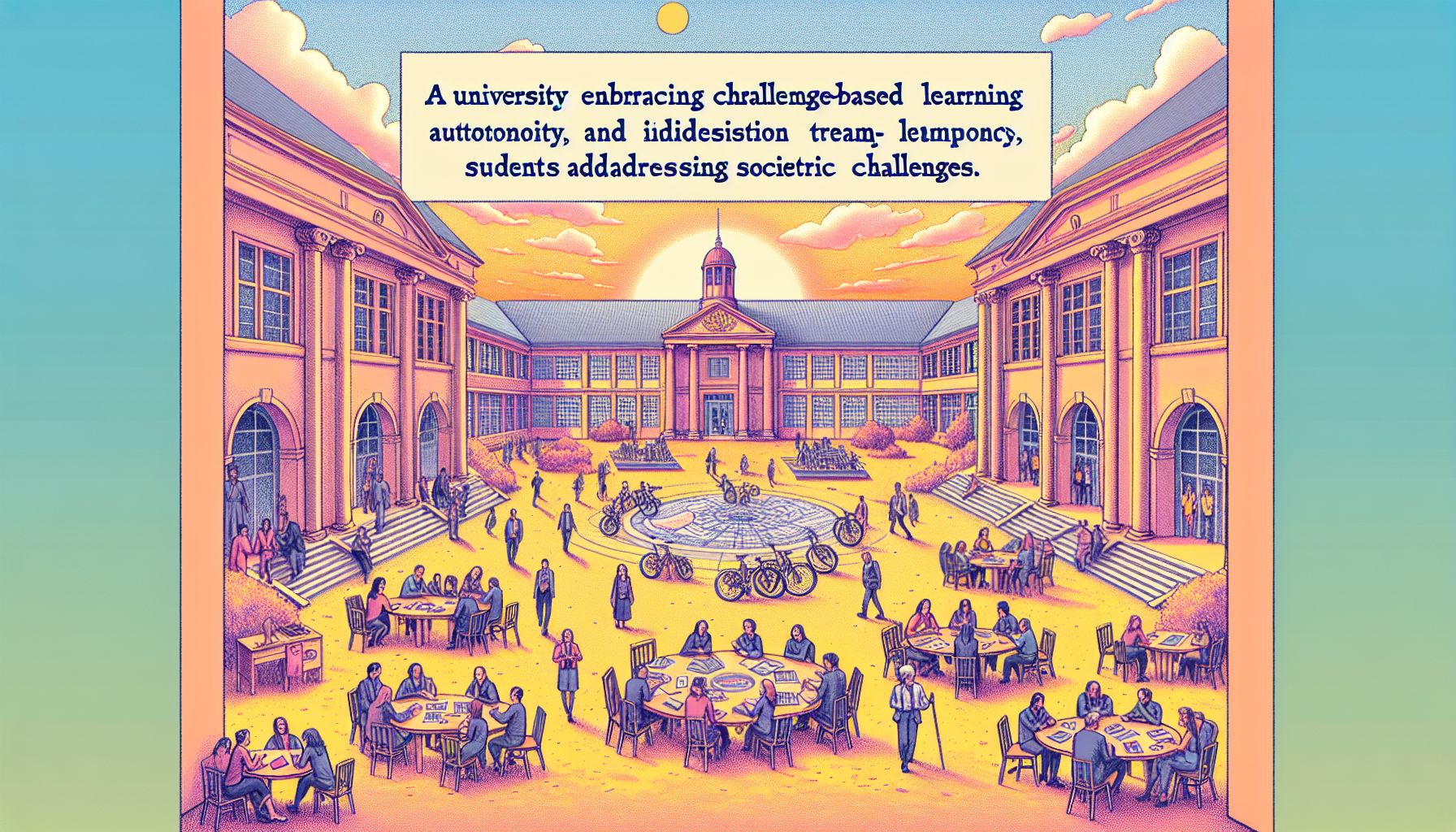Eindhoven University Embraces Challenge-Based Learning to Foster Innovation

Eindhoven, Friday, 4 October 2024.
TU/e adopts Challenge-Based Learning to prepare students for real-world problem-solving. This approach emphasizes autonomy, interdisciplinary teamwork, and tackling societal challenges, moving away from traditional teaching methods to cultivate future change agents in technology and innovation.
The Evolution of Challenge-Based Learning at TU/e
The Technical University of Eindhoven (TU/e) has been at the forefront of educational innovation with the introduction of Challenge-Based Learning (CBL). This pedagogical approach, which has been gradually integrated into the curriculum since 2015, allows students to engage directly with real-world problems, fostering a hands-on learning environment. Initially rooted in honors programs, CBL has now become a staple across the university, with approximately 4,400 students participating annually in various CBL courses and projects[1].
A Platform for Innovation and Collaboration
At the heart of this initiative is the TU/e innovation Space, located in the Matrix building, which serves as a hub for student entrepreneurship and interdisciplinary collaboration. The innovation Space was established nearly eight years ago to address uncertainties in traditional educational models and has since evolved to accommodate a growing number of students and projects. The space is designed to encourage students to take on self-chosen challenges, aligning their academic pursuits with personal passions and societal needs[1].
CBL’s Distinctive Approach
Challenge-Based Learning distinguishes itself from other educational models by emphasizing student autonomy and the application of knowledge in uncertain environments. Unlike Problem-Based Learning, CBL not only requires students to propose solutions but also to implement them, thereby instilling a sense of ownership and accountability. This method is inherently multidisciplinary, often requiring students to collaborate across various fields to address complex societal challenges such as the energy transition and climate crisis[1][3].
Global Recognition and Future Aspirations
The success of CBL at TU/e has not gone unnoticed. The innovation efforts led by scientific director Isabelle Reymen have garnered significant recognition, including the Dutch Higher Education Award in 2021. Looking ahead, Reymen envisions the innovation Space as a collaborative environment linking educators, students, and external partners worldwide to tackle global challenges. This vision aligns with the university’s Strategy 2030, which emphasizes the theme of Talent and the preparation of students as change agents for the future[1].

